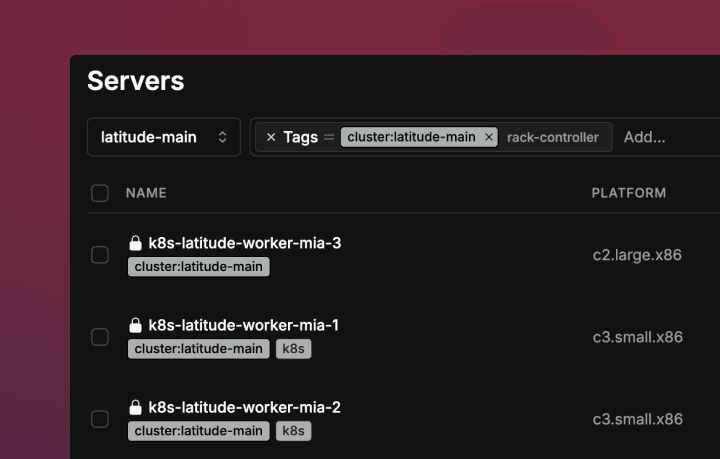
Improved dashboard experience
We’ve refreshed the Latitude.sh dashboard with a redesigned home and an updated navigation that makes browsing resources easier and more consistent.
When a project is selected, the menu now adapts to show project-specific resources, keeping context clear.

We’ve also improved the filters with a keyboard-first experience: open search bar with '/' and your saved views with 'V'.

New search and filters interface for deployed servers
We've improved the search and filter interface on the servers dashboard.
The new UI provides more intuitive controls and better filtering options, helping you quickly locate the information you need.

Amsterdam is now live
Our newest site is now available, enabling EU redundancy and becoming another option for GDPR compliance.
Get started in AMS today with our latest series of servers:
More instance types are on their way and will be added to the platform soon.
Terraform Provider v2.3.0
In this update, we addressed many resource import issues, improved the import examples and Docs for multiple resources, and shipped some additional enhancements:
Added hostname max length validation (32-character limit)
Improved resource import logic
Updated Go SDK to v1.4.14 with enhanced SSHKeys handling
Exposed server resource interfaces for extensibility
You can learn more about it in our Terraform Docs.

VLAN assignment from Server Details page
No more back and forth between Network and Server tabs.
Users can now assign servers to a private network straight from the server details page.